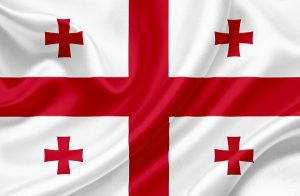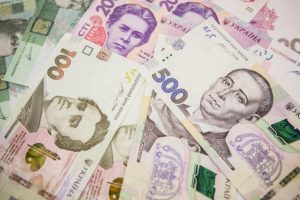
Georgian President Salome Zourabichvili has said that, as soon as it becomes possible, she will pay a visit to Ukraine, as an earlier visit was postponed due to the COVID-19 pandemic.
“I am prepared as soon as the time is right to pay a visit, which has long been postponed over COVID-19 and not only because of it. I will try to restore our relations on a basis that matches the traditionally friendly ties between our two countries,” Zourabichvili said at a press conference in Tbilisi on Friday.
Georgia and Ukraine are bound by a course toward integration into NATO and the European Union and by joint projects in the Black Sea with their European partners, and any attempts to weaken this partnership would negatively affect the European integration of both countries, she said.
At the same time, Zourabichvili mentioned recent remarks by Mikheil Saakashvili, a former Georgian president who currently serves as the head of the Executive Committee of the Ukrainian National Reform Council, who has said he does not recognize the incumbent Georgian government as legitimate.
“A provocative tone addressed to the Georgian government by a foreign citizen working for a foreign government harms our bilateral relations,” Zourabichvili said.
The Georgian Foreign Ministry recalled its ambassador from Kyiv in May, after Saakashvili was appointed head of the National Reform Council’s Executive Committee.
Tbilisi interpreted Saakashvili’s negative remarks about the Georgian government as interference in Georgia’s internal affairs.

Kyivstar mobile operator has opened the 500th communication outlet in Illintsi, Vinnytsia region.
The company’s press service said on Friday that Kyivstar plans to develop its retail chain in small residential locations and some residential areas in big cities this year. Such a strategy is conditioned by the decision to get closer to the customers and make its services more accessible.
The mobile operators plans to extend its retail chain to 544 outlets by the end of 2020.
“We have resumed work of all 500 outlets. The number of customers and the quantity of services are growing. Around 645,000 subscribers addressed Kyivstar’s outlets in March and April, which were working in a special regime, and in May-June this index was more than 700,000 visitors,” the press service cited Retail Sales Director of Kyivstar Olha Smyslenova.
Around 14 million subscribers address Kyivstar’s outlets annually, most of them need consultation or service. In 2019, the service of replacing Sim card with Usim card was provided 2.5 million times.
Kyivstar is the largest Ukrainian telecommunications operator. It provides communications and data services based on a wide range of mobile and fixed-line technologies, including 3G. By the end of 2018, 26.4 million mobile subscribers and about 0.9 million fixed-line Internet customers used its services.
The shareholder of Kyivstar is the international group VEON (formerly VimpelCom Ltd.). Shares of the group are listed on NASDAQ Stock Exchange (New York).

On July, 18 and 19 Ancient Kiev in the Principality of Kievan Rus (“The Kievan Rus Park”) invites you to join the weekend tour “The Mystery of Genghis Khan”. Horse stunt performances, horseback riding, delicious meals from the fire, extreme attractions, museums, expositions and lots of interesting activities will be waiting for you. And all this in a real, living medieval city!
Horseback archery competitions will be a pleasant surprise for the guests on July, 18 and19. The competitions will be held in the formats of single races and mass attack. Experienced horse stuntmen will compete in the accuracy of shooting using traditional (historical) bows on horseback at full gallop. It is an incredibly difficult task for the participants in the competitions, but at the same time, a thrilling and exciting show for the spectators!
Visiting Ancient Kiev is available in accordance with the requirements of the quarantine regime.
The entry ticket price:
• for adults (full price) – 200 UAH.,
• for pensioners and students – 150 UAH.,
• for schoolchildren – 80 UAH.,
• for preschool children – for free,
Ancient Kyiv is open from 10:00 till 19:00.
Ancient Kyiv in the «Kyivan Rus Park» is located in Kyiv region, Obukhiv district, the vill. Kopachiv.
Details on the website www.parkkyivrus.com
The Interfax subscribers can save money with the “openbusiness-20” promo code for a 20%-discount for a full price adult ticket to the Principality of Kyivan Rus:
– by previous order by tel.: +38 044 461-99-37, +38 050 385-20-35
– or at the cash desk at the entrance to the «Kyivan Rus Park».

Ukrainian business has worsened expectations regarding a slowdown in inflation over the next 12 months to 7% from 5.1% in the middle of the year and the weakening of the hryvnia exchange rate to UAH 28.28/$1 from UAH 26.01/$1.
According to the results of a regular quarterly survey of business expectations of enterprises, conducted by the National Bank of Ukraine (NBU) from May 4 to June 4 this year, businesses more restrainedly expected an increase in production of goods and services in Ukraine in the next 12 months. Thus, almost 34.1% (10.4% a quarter earlier) of respondents expected a decrease in this indicator.
According to the survey, the business activity of Ukrainian enterprises decreased to the lowest index of business expectations since 2015 for the next 12 months, to 90.8% from 110.5% a quarter earlier.
It is noted that a decline in business activity is expected by enterprises of all types and areas of activity.
The poll shows that most companies do not expect changes in their financial and economic situation in the next 12 months, 22% of companies expect deterioration. The regulator noted that representatives of small and medium-sized businesses have more pessimistic assessments.
According to the report, the business expects a decrease in the total volume of sales of products, including in the external market. In general, growth in this indicator is predicted only by respondents from processing industry and trade, and the lowest estimates are in construction and mining enterprises.
According to the survey, for the third quarter in a row, the share of companies that predict a decrease in the number of employees at their enterprises has increased. In particular, the share of enterprises planning to cut staff in the next 12 months increased to 26.3% from 21% a quarter earlier. The respondents are pessimistic in all types of economic activity, except for construction, where the number of employees is predicted to remain unchanged.
At the same time, the number of companies planning to raise wages for their employees has significantly decreased over the next 12 months, to 36.5% from 63.4%.

PrJSC Poltava Mining and Processing Plant (Poltava GOK, Komsomolsk, Poltava region), the main asset of Ferrexpo Group, has launched a new technological complex for production of finished goods – Section No. 9 of the concentrating plant, the total cost of the project exceeded $100 million.
According to Ferrexpo’s expectations, the project will make it possible to produce an additional 2 million tonnes of finished products, which will increase the company’s sales volumes by about UAH 2 billion per year, starting from July 1 this year. The implementation of this project will increase the plant’s installed capacity to more than 15 million tonnes of concentrate per year.
Section No. 9 is a modern complex of the production chain, which includes additional crushing and dressing areas, a new electrical substation, a system for transferring prepared raw materials and finished products, as well as additional conveyor lines, the press release says. The main equipment manufacturer for it is Metso Outotec. Other leading world companies also participated in the project implementation process and Ukrainian contractors from different regions were involved. Construction took over four years.
At the same time, the company indicates that this investment has already provided payments to the state budget and budgets of other levels in the amount of about UAH 400 million and will further bring up to UAH 300 million of such payments annually.
As reported, Ferrexpo plc in January-June 2020 increased the processing of iron ore concentrate – raw materials for pellets – by 6.3% compared to the same period in 2019, to 7.002 million tonnes.
Ferrexpo is an iron ore company with assets in Ukraine.
Ferrexpo owns 100% of shares of Poltava GOK, 100% of Yeristovo GOK and 99.9% of Belanovo GOK.

The State Agency on Energy Efficiency and Energy Saving of Ukraine will continue cooperation with experts of the German energy agency DENA in the fields of energy efficiency and renewable energy, the press service of the Ukrainian agency has said.
According to the report, following negotiations between the two agencies with the participation of the Ministry of Energy, the areas of cooperation will include, in particular, the development of Ukraine’s potential for the use of hydrogen, the introduction of energy storage systems, the implementation of EU directives in the field of energy efficiency, and improving energy efficiency.
The report notes that DENA experts, in particular, pointed to Germany’s plans for the use of hydrogen and expressed their readiness to share their research in this direction with Ukraine.
The Ukrainian agency also noted that DENA had been selected as one of the partners in the implementation of future energy cooperation between Ukraine and Germany.
As reported, the Cabinet of Ministers adopted a resolution to sign a joint statement of intent between the government of Ukraine and the Federal Republic of Germany regarding the start of energy cooperation, authorizing Acting Energy Minister Olha Buslavets to sign it.